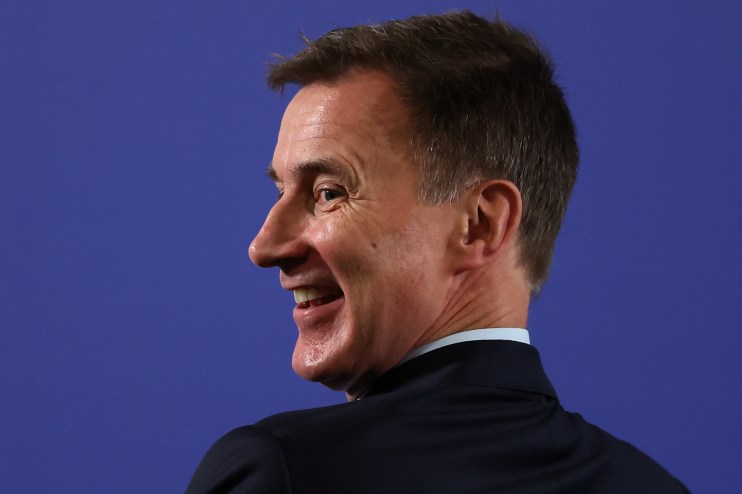No cuts to corporate tax or business rates, here’s what Jeremy Hunt won’t do in the Autumn Statement

You’ve heard plenty about what Jeremy Hunt will say tomorrow, but we can learn as much about the government’s priorities in what he won’t say, writes Tim Sarson
I’ve spent much of the last two weeks making predictions about what will turn up in the Chancellor’s autumn statement tomorrow. I don’t plan to go over this again here. Most measures get leaked in the days leading up to the event anyway, and there’s always the risk that anything I write now will already be out of date when this goes to press.
Instead let me tell you what won’t be announced tomorrow. Why? Because what a government isn’t doing, a year or less for a General Election, gives us a good idea of its priorities as well as the political reality in which events like the autumn statement take place.
They’re not going to reduce the 25 per cent corporation tax rate
We spent plenty of time and energy arguing over the UK’s corporation tax rate last year. That argument is settled now. Cutting corporation tax is expensive and for better or worse the government has decided that incentives and reliefs, like full expensing of Capex, are where the action is. Ignore too any speculation over the UK not implementing the global minimum tax. That ship has sailed. Multinationals are now well into preparation for the new regime and it’s in our interests to go in lockstep with our European peers on this.
Should we revisit 25 per cent? Perhaps. A change in headline rate could send a signal to international investors. But we can’t afford it and it’s not happening.
Those cliff edges and high marginal rates will remain
Social media has been full of the iniquities of our distortive tax thresholds and tapers in recent months. There’s the VAT registration threshold, responsible for those charts showing thousands of businesses deliberately constraining their growth to just below £85,000. And there’s also the various income bands where individuals can face eye-wateringly high marginal tax rates, particularly if they’re being tapered off in work benefits or reliefs like the personal allowance.
These really need to be dealt with. They suffocate economic activity and encourage illogical taxpayer behaviour, and they are often unfair. They are also very difficult to eliminate without complication and political blowback because there’s almost always a loser somewhere. In spring the government had a go at one of these, the pensions lifetime allowance, and just that one reform created a row that used up valuable political airtime. Not happening before an election.
Business rates reform is going to have to wait
Our other frequent visitor to the long grass is the long overdue reform of how we tax businesses on the property they use. Business rates can price otherwise successful local enterprises out of the market; there is a perception they distort the playing field between physical and online retail, and almost universal consensus they need reforming. But not yet. Too difficult, too long term, too much risk that someone somewhere will be a loser and shout loudly about it. And not exciting enough to win elections.
Tax powers won’t be devolved to regions or cities
Britain is one of the rich world’s most hyper-centralised states, and that’s as true of the tax system as any other branch of government. Westminster holds the purse strings ever tighter. Local authorities are financial supplicants to central government. Even the devolved administrations have hardly any flexibility to raise or lower taxes meaningfully. The government is not averse to having some regional incentives, like the freeports and the proposed investment zones. But they’re set and controlled in Westminster, not locally. Contrast with some of the world’s most successful economies, notably the USA, whose states have real autonomy and can lure investment and people through tax competition.
There is a strong argument to let our regions and cities make far more of their own decisions on tax and spending, and that’s something I’ll write about in future. Will we see anything in this direction in the autumn statement? Of course not.
Your personal tax rate isn’t going down, yet
Finally, don’t expect any big pre-election payroll tax giveaways next week. We’ve another fiscal event next spring, the last one before the next election. The Chancellor will want to save something for then.